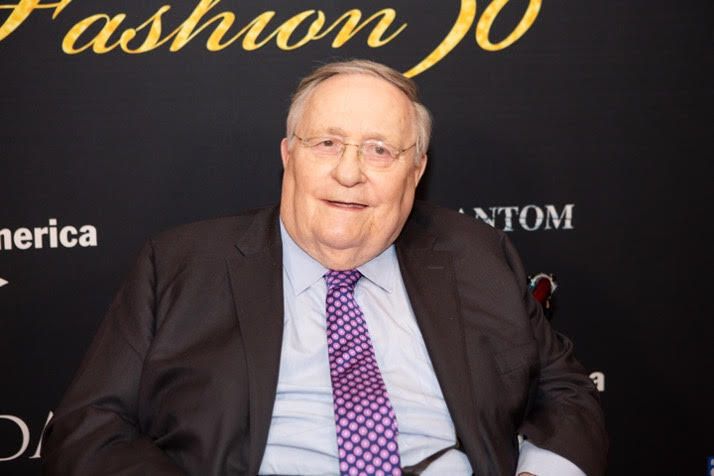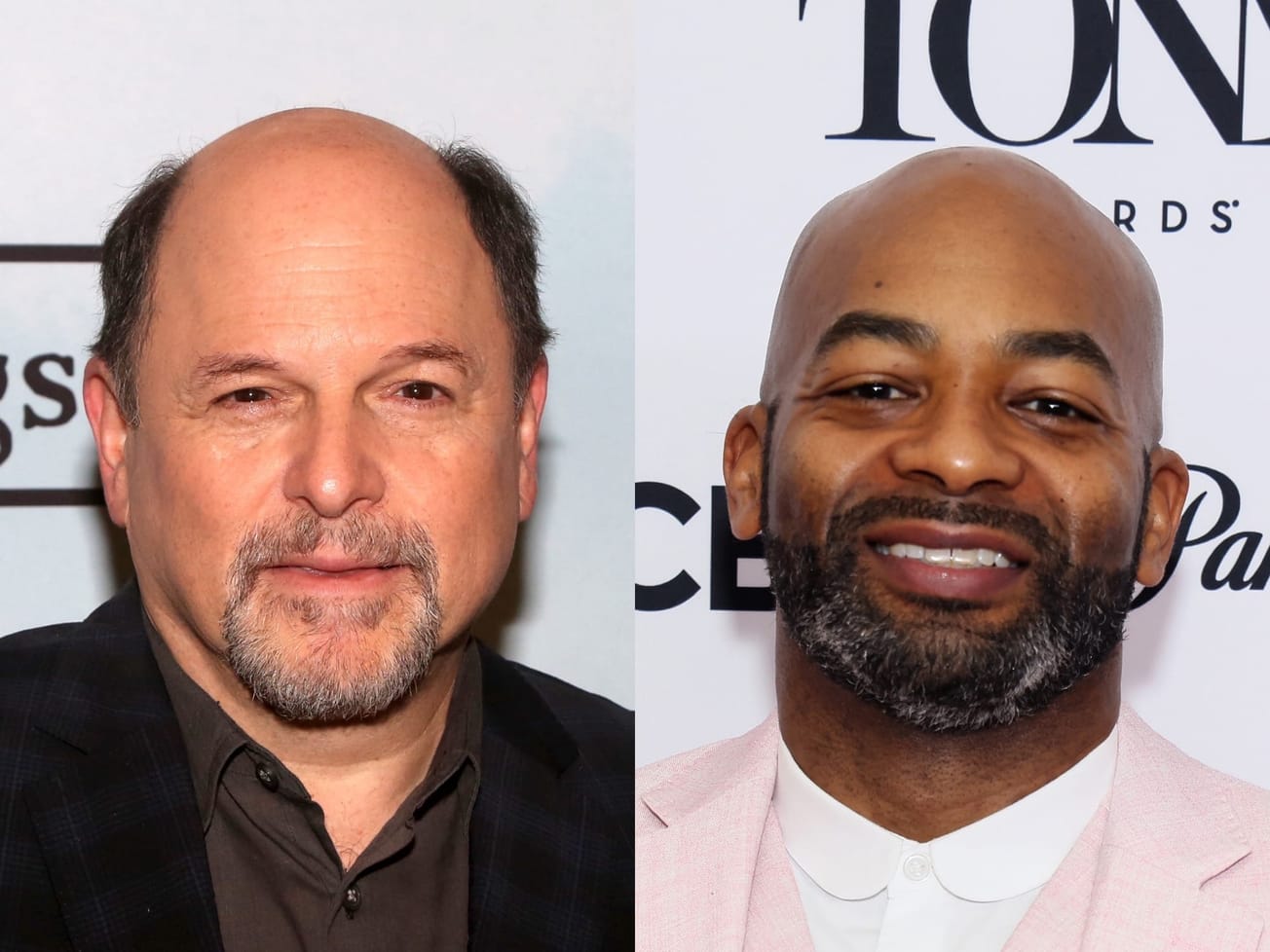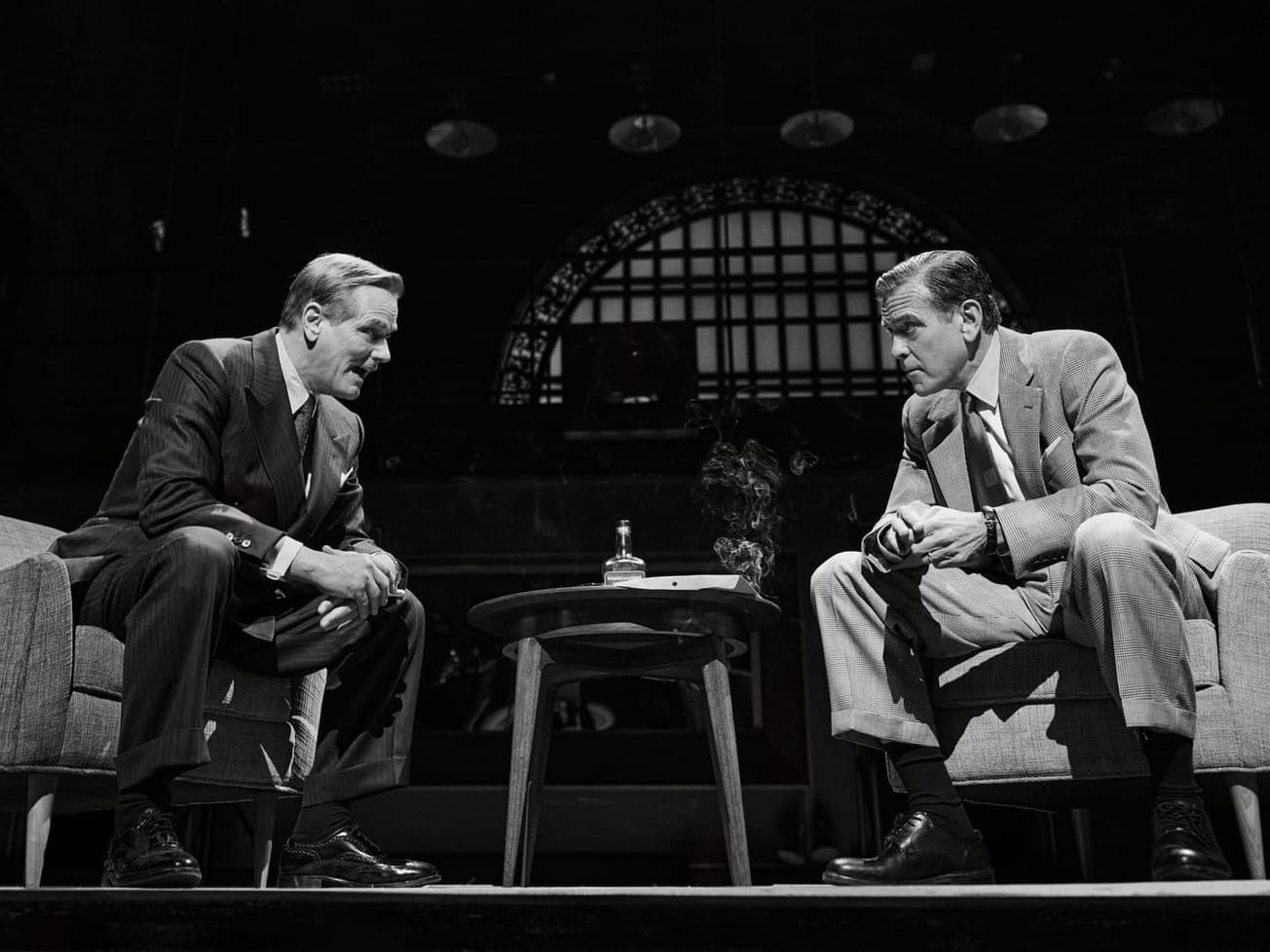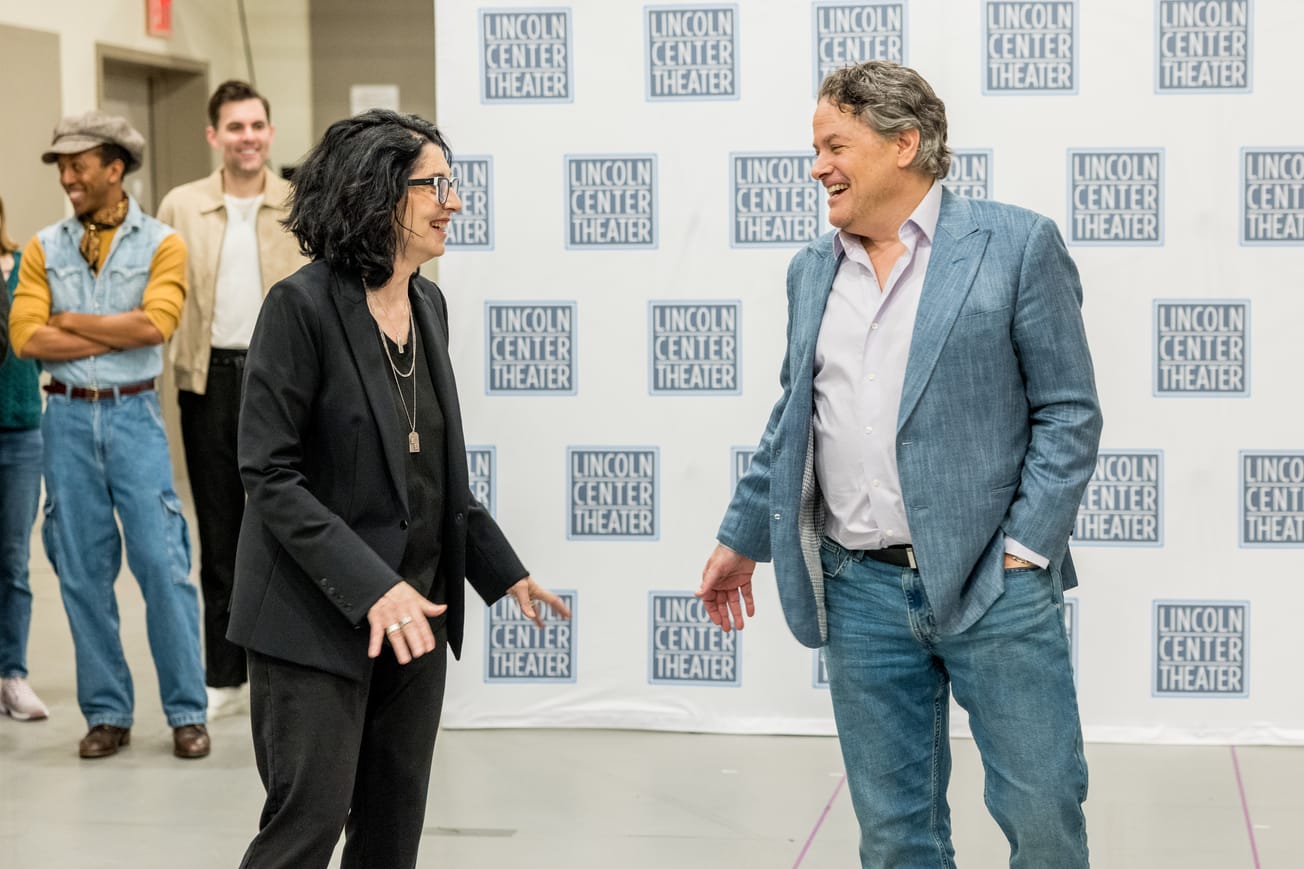About once a month for a number of pre-COVID years, producer Scott Rudin, Philip J. Smith, the chairman of the Shubert Organization, and I would meet for dinner at Sette Mezzo on the Upper East Side. Phil, who died Jan. 15 at 89, would often regale us with stories of the Shubert empire and its commanding role on Broadway. One night, after a particularly juicy anecdote, Scott quipped, “Phil, you’re the Tom Hagen of the Shuberts.”
In his 63 years with the company, Phil exercised enormous behind-the-scenes power the way Tom Hagen (played by Robert Duvall) does in “The Godfather.” Like Hagen, Phil was cool in a crisis, analyzing it from every angle, prepared to bring down the hammer if necessary, but preferring to make a deal that left everybody content.
“Phil had the ability to solve problems by neutralizing the problems,” said producer Albert Poland, Smith’s close friend of 50 years.
I knew Phil for more than 20 years. When I first met him, he was second-in-command at Shubert, whose chairman at the time was Gerald Schoenfeld. Eager to learn about the theater business, I’d often swing by their offices around 6 p.m. on a Friday and sit spellbound as these two powerful men swapped old war stories.
One I loved was how the Shuberts swiped “The Phantom of the Opera” from one of their rivals, Jujamcyn Theaters. The Shuberts thought they had the show for the Majestic, but at the last minute producer Cameron Mackintosh decided Jujamcyn’s Martin Beck Theatre was a better fit because it was more intimate. Phil went to work. He knew Andrew Lloyd Webber’s favorite show was “South Pacific,” which had played the Majestic. He invited Andrew on a tour of the theater. When the tour was over, Phil said, “And this is the theater where ‘South Pacific’ opened.” The Shuberts got back “Phantom,” which had been running at the Majestic for 31 years, before it was interrupted by Broadway’s shutdown.
When Jerry died in 2008, I became even closer to Phil. Most of our conversations were off the record, and he came to trust me. One night I told him I had an idea for a book about Broadway in the 1970s and ’80s, difficult years for the industry. I wanted to tell the story of how the Shuberts shored up the business and paved the way for Broadway’s remarkable success in the 1990s and 2000s. “I can’t write this book without your help,” I told Phil. He was all for it. His close friend had been Bernard B. Jacobs, who, along with Schoenfeld, ran the company back then. Bernie died in 1996, and Phil felt Bernie had been forgotten by a business that owed him so much.
A few weeks after I signed my book deal, disaster struck. A person connected to the Shuberts (no names here, folks) did not want the company to cooperate with me, and said so to the board of directors. “Michael, we have a problem,” Phil said. I was devastated. Phil calmed me down. Over brunch at the Water Club, we decided I should write a letter to the board laying out my plan for the book. I concluded: “I can, and will, write this book without the cooperation of the Shubert Organization. But it will be a much better book, a much richer book, if the Shuberts take part.” Phil read the letter aloud to the board, which voted unanimously to cooperate.
I spent 20 hours interviewing Phil, and I remember thinking that every story he told was going to make a great scene in my book. J.J. Shubert, the youngest of the three brothers who created the empire, was a tyrant. Phil recalled that a manager of one of the Shubert theaters noticed the seats were fraying. “We need to recover the seats,” the manager said. J.J. snapped, “The only thing I want covering my seats are asses.”
When the book — “Razzle Dazzle: The Battle for Broadway” — came out, Phil thought it was fun, fair and accurate. It was the best review I got. I took to calling him my co-author.
Phil remained with the Shuberts until his retirement in June 2020. We had many dealings, on and off the record, along the way. I once wrote a column for the New York Post announcing that the Shuberts had booked “Matilda” into their flagship Shubert Theatre. I popped into the offices after I’d filed the column and casually mentioned my little announcement. Some at Shubert were justifiably incensed. I was being a little mischievous. The Shuberts had yet to tell the theater’s current tenant, “Memphis,” that they’d have to vacate. The show’s producers would learn about it from my column. The give-and-take got a little contentious. Phil said nothing until we were alone in his office. Then he said: “I have a favor to ask. You say the Shubert Theatre. Could you say a Shubert theater?” I made the change, and Phil and I and the formerly incensed Shubert execs went out for a jolly dinner.
That was Phil. In the midst of a storm, he’d navigate to calmer waters, never losing anyone along the way.


























































